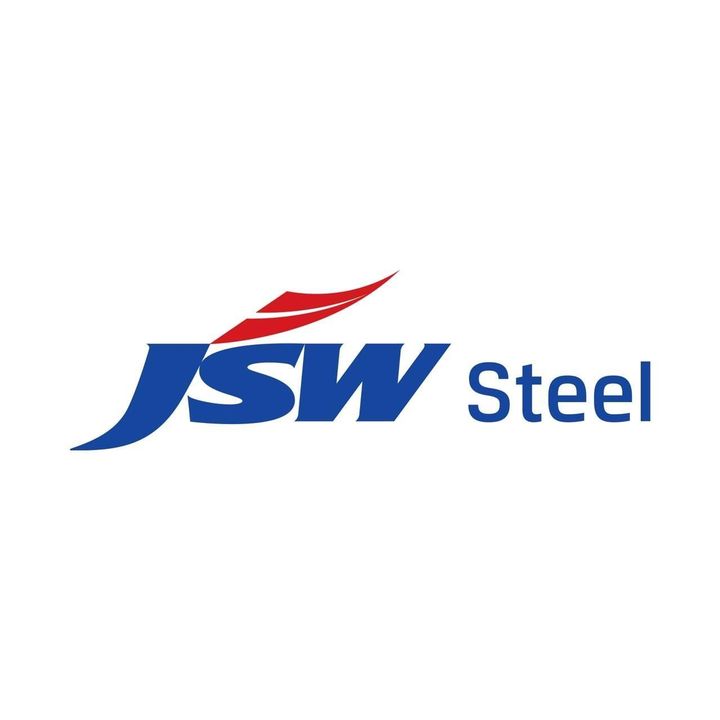India's Steel Industry Faces a Hard Wall: Court Ruling on Met Coke Imports
March 31, 2025, 6:16 am

Location: Switzerland, Geneva
Employees: 5001-10000
Founded date: 1993
Total raised: $3.2B

Location: India, Maharashtra, Mumbai
Employees: 10001+
Founded date: 1982
Total raised: $2.02B
The steel industry in India is hitting a rough patch. A recent court ruling has thrown a wrench into the plans of major players like JSW Steel and Trafigura. The Delhi High Court has rejected their requests to clear certain shipments of low-ash metallurgical coke, commonly known as met coke. This decision comes in the wake of new import restrictions imposed by the Indian government, aimed at protecting domestic suppliers. The ruling is a significant blow to companies that were already grappling with the implications of these restrictions.
In January, India introduced strict quotas on met coke imports. The goal? To bolster local production and reduce dependency on foreign sources. However, this move has sent shockwaves through the steel sector. Companies like ArcelorMittal Nippon India are voicing concerns about the quality of domestically produced met coke. They fear that the new policy could hinder their operations and expansion plans.
JSW Steel, a key player in the industry, had ordered $90 million worth of met coke before the restrictions took effect. They challenged the government's decision to block these imports, arguing that they were unaware of the impending restrictions when placing their order. Trafigura's India unit took a similar route, seeking to clear one of its rejected shipments. But the court sided with the government, emphasizing that allowing these imports would undermine the very purpose of the new policy.
The court's ruling is a stark reminder of the challenges facing the steel industry in India. The government has set a cap of 1.4 million metric tons on total overseas purchases of low-ash met coke between January and June. This is a significant reduction compared to previous years, where imports had more than doubled over four years. The restrictions are not just numbers; they represent a shift in policy that could reshape the landscape of steel production in India.
The implications of this ruling extend beyond JSW Steel and Trafigura. ArcelorMittal Nippon India has warned that it may have to curtail steel production and delay expansion plans due to these import restrictions. The company has also approached the Delhi court to seek clearance for its met coke imports from Indonesia and Poland, but that case remains undecided. The uncertainty looms large over the industry, as companies grapple with the potential fallout from these restrictions.
India is the world's second-largest producer of crude steel. The stakes are high. The government's move to restrict imports is a double-edged sword. On one hand, it aims to protect local manufacturers and promote self-sufficiency. On the other, it risks alienating major players who rely on imported materials to maintain production levels and quality.
The court's decision has left many in the industry reeling. Companies are now forced to reassess their strategies in light of the new reality. The quality of locally produced met coke is under scrutiny. Steelmakers are concerned that domestic suppliers may not meet the high standards required for steel production. This could lead to a decline in the quality of steel produced in India, affecting everything from construction to automotive manufacturing.
The ripple effects of this ruling could be felt across the economy. The steel industry is a cornerstone of India's manufacturing sector. Any disruption in production could have a cascading effect on jobs, investments, and economic growth. The government must tread carefully. Balancing the need for self-sufficiency with the realities of global supply chains is no easy task.
As the dust settles from this court ruling, the future of India's steel industry hangs in the balance. Companies are left to navigate a complex web of regulations and restrictions. The road ahead is fraught with challenges, but it also presents opportunities for innovation and adaptation. The industry must find ways to enhance the quality of domestic met coke production. Collaboration between the government and steelmakers will be crucial in this endeavor.
In conclusion, the recent court ruling on met coke imports is a pivotal moment for India's steel industry. It underscores the tension between government policy and industry needs. As the landscape shifts, stakeholders must adapt to survive. The future of steel production in India will depend on how well the industry can respond to these challenges. The stakes are high, and the outcome will shape the trajectory of one of the country's most vital sectors. The steel industry must now forge ahead, even as it faces a hard wall.
In January, India introduced strict quotas on met coke imports. The goal? To bolster local production and reduce dependency on foreign sources. However, this move has sent shockwaves through the steel sector. Companies like ArcelorMittal Nippon India are voicing concerns about the quality of domestically produced met coke. They fear that the new policy could hinder their operations and expansion plans.
JSW Steel, a key player in the industry, had ordered $90 million worth of met coke before the restrictions took effect. They challenged the government's decision to block these imports, arguing that they were unaware of the impending restrictions when placing their order. Trafigura's India unit took a similar route, seeking to clear one of its rejected shipments. But the court sided with the government, emphasizing that allowing these imports would undermine the very purpose of the new policy.
The court's ruling is a stark reminder of the challenges facing the steel industry in India. The government has set a cap of 1.4 million metric tons on total overseas purchases of low-ash met coke between January and June. This is a significant reduction compared to previous years, where imports had more than doubled over four years. The restrictions are not just numbers; they represent a shift in policy that could reshape the landscape of steel production in India.
The implications of this ruling extend beyond JSW Steel and Trafigura. ArcelorMittal Nippon India has warned that it may have to curtail steel production and delay expansion plans due to these import restrictions. The company has also approached the Delhi court to seek clearance for its met coke imports from Indonesia and Poland, but that case remains undecided. The uncertainty looms large over the industry, as companies grapple with the potential fallout from these restrictions.
India is the world's second-largest producer of crude steel. The stakes are high. The government's move to restrict imports is a double-edged sword. On one hand, it aims to protect local manufacturers and promote self-sufficiency. On the other, it risks alienating major players who rely on imported materials to maintain production levels and quality.
The court's decision has left many in the industry reeling. Companies are now forced to reassess their strategies in light of the new reality. The quality of locally produced met coke is under scrutiny. Steelmakers are concerned that domestic suppliers may not meet the high standards required for steel production. This could lead to a decline in the quality of steel produced in India, affecting everything from construction to automotive manufacturing.
The ripple effects of this ruling could be felt across the economy. The steel industry is a cornerstone of India's manufacturing sector. Any disruption in production could have a cascading effect on jobs, investments, and economic growth. The government must tread carefully. Balancing the need for self-sufficiency with the realities of global supply chains is no easy task.
As the dust settles from this court ruling, the future of India's steel industry hangs in the balance. Companies are left to navigate a complex web of regulations and restrictions. The road ahead is fraught with challenges, but it also presents opportunities for innovation and adaptation. The industry must find ways to enhance the quality of domestic met coke production. Collaboration between the government and steelmakers will be crucial in this endeavor.
In conclusion, the recent court ruling on met coke imports is a pivotal moment for India's steel industry. It underscores the tension between government policy and industry needs. As the landscape shifts, stakeholders must adapt to survive. The future of steel production in India will depend on how well the industry can respond to these challenges. The stakes are high, and the outcome will shape the trajectory of one of the country's most vital sectors. The steel industry must now forge ahead, even as it faces a hard wall.
